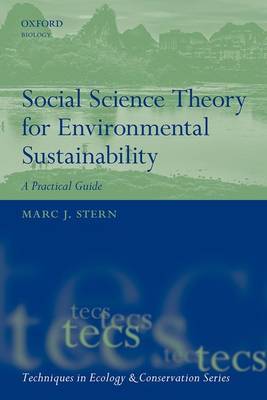
- Afhalen na 1 uur in een winkel met voorraad
- Gratis thuislevering in België vanaf € 30
- Ruim aanbod met 7 miljoen producten
- Afhalen na 1 uur in een winkel met voorraad
- Gratis thuislevering in België vanaf € 30
- Ruim aanbod met 7 miljoen producten
Zoeken
Social Science Theory for Environmental Sustainability
A Practical Guide
Marc J. (Professor, Professor, Department of Forest Resources an
€ 180,45
+ 360 punten
Uitvoering
Omschrijving
A simple reference guide to illuminate the value and utility of social science theories for the practice of environmental conservation, and to encourage environmental professionals to communicate better with social scientists.
Specificaties
Betrokkenen
- Auteur(s):
- Uitgeverij:
Inhoud
- Aantal bladzijden:
- 308
- Reeks:
Eigenschappen
- Productcode (EAN):
- 9780198793182
- Verschijningsdatum:
- 19/07/2018
- Uitvoering:
- Hardcover
- Afmetingen:
- 240 mm x 162 mm
- Gewicht:
- 668 g

Alleen bij Standaard Boekhandel
+ 360 punten op je klantenkaart van Standaard Boekhandel
Beoordelingen
We publiceren alleen reviews die voldoen aan de voorwaarden voor reviews. Bekijk onze voorwaarden voor reviews.







